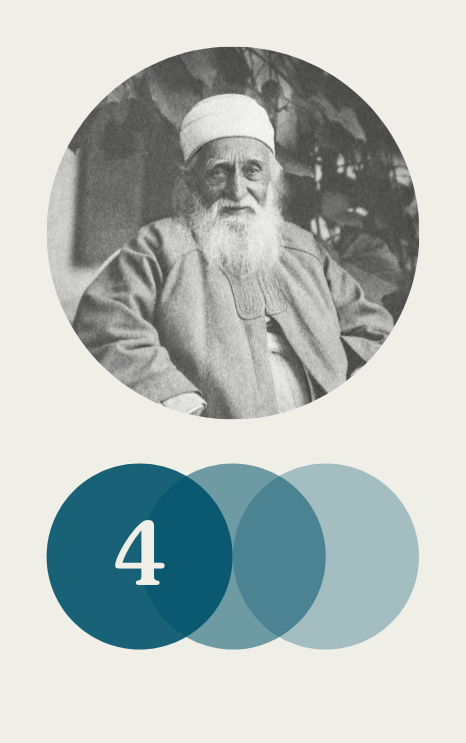In the dynamic discourse surrounding racial equality, the Bahá’í teachings serve as a profound compass, guiding individuals toward a more harmonious world. Episode Four of the series “Ambassador to Humanity,” particularly highlights a vision for racial equality that is both ambitious and transformative. This episode embodies the principles of unity, justice, and collective progress, drawing on the rich tradition of Bahá’í thought and its visionary leaders. By examining the multifaceted layers of this episode, we can glean a comprehensive understanding of the Bahá’í perspective on racial equality.
The metaphor of the “Ambassador to Humanity” encapsulates a crucial element of Bahá’í philosophy— the idea that individuals are not solely representatives of their own identity but rather emissaries of a universal humanity. This notion transcends mere national or ethnic boundaries, cultivating an ethos of solidarity among diverse peoples. This vision is not a passive hope; it is an active mandate for change. The episode adeptly articulates that to progress towards racial equality, it is imperative to recognize each individual as an integral strand in the tapestry of human existence.
A central tenet of Bahá’í beliefs is the inherent oneness of humanity. The teachings posit that regardless of race, nationality, or gender, all individuals are part of a single human family. This is vividly illustrated in the episode when it discusses the foundational concept of unity in diversity. Just as a symphony requires a variety of instruments to create a harmonious piece, the Bahá’í vision advocates for the celebration and integration of differences as a strength rather than a source of division. Such a perspective challenges the prevailing narrative of racial superiority that has historically justified inequality and strife.
Emphasizing the practical application of these ideals, the episode elaborates on the necessity of education as a transformative tool. The Bahá’í teachings advocate for an education that fosters not just intellectual growth but also emotional and spiritual development. This holistic approach is vital for combating prejudice, which often stems from ignorance. The episode presents insightful examples of community initiatives that have successfully employed education to illuminate the shared humanity of individuals, thus dismantling entrenched stereotypes and biases.
A poignant moment in the episode highlights the idea of shared responsibility in achieving racial equality. It posits that the quest for justice is not solely the obligation of the oppressed but requires the proactive engagement of all individuals, especially those benefiting from systemic privileges. This call to action resonates deeply within the Bahá’í framework, urging listeners to embrace a collective commitment to eradicate racial injustice. The Bahá’í teachings encourage the development of a just society, underpinned by principles of equity and fairness, which require concerted efforts from every sector of the community.
Moreover, the episode delves into the role of spirituality in the struggle for racial equality. It articulates that true transformation stems from inner conviction and moral rectitude. By invoking the concept of divine love, the Bahá’í teachings suggest that the antidote to prejudice lies in nurturing a profound sense of empathy and understanding toward others. The vision outlined in the episode posits that as individuals cultivate a deeper spiritual awareness, they become catalysts for change, driving forward initiatives grounded in compassion and justice.
The metaphor of a garden serves as a powerful illustration throughout the discussion. Just as a garden flourishes when tended to with care, love, and attention, so too does a society thrive when its members actively work toward racial equality. The Bahá’í vision for a racially inclusive society is akin to a diverse garden, where different colors, shapes, and sizes contribute to a vibrant ecosystem. This metaphor encapsulates the essence of the teachings, emphasizing the need for nurturing connections between individuals, fostering mutual understanding, and cultivating an environment where diversity is cherished.
In articulating the path toward fulfillment of this vision, the episode suggests actionable steps that individuals can incorporate into their lives. Engaging in open dialogues about race, challenging personal biases, and actively participating in community-building activities are all avenues through which one can contribute toward racial equality. The teachings advocate for the importance of personal initiative, underscoring that profound social change originates from individual and collective action. This principle echoes the Bahá’í belief that each person possesses the ability to effectuate change, forging a path toward a more equitable society.
Ultimately, Episode Four of “Ambassador to Humanity” presents a compelling vision of racial equality deeply rooted in Bahá’í teachings. It is a clarion call to embrace our shared humanity, recognize the power of education, and ignite our capacity for love and understanding. The intricate interplay of metaphors such as the ambassador and the garden not only enhances the engagement of the audience but also fosters a deeper appreciation for the complexities inherent in the struggle for equality. An unwavering commitment to the ideals of unity and justice emerges as not only desirable but essential in our collective pursuit of a world where all individuals can thrive, free from the shackles of racial prejudice.
